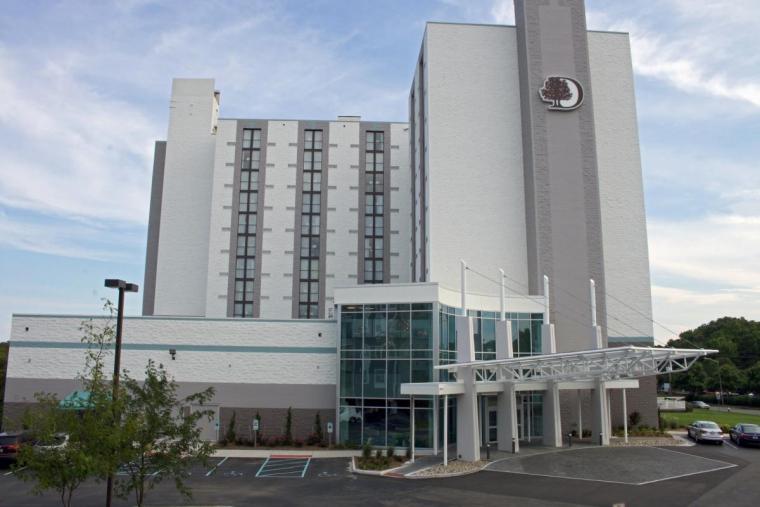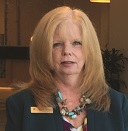
When negotiating a c ontract is part of your job – as it is ours as hotel sales representatives – you know the questions to ask, the points to cover and the trends to look for. But if you’re a sports event planner, you may not be aware of all of these things. Here is a quick primer on what to ask and what to look for when you’re considering hotel space. All of these will factor into your negotiations.
ontract is part of your job – as it is ours as hotel sales representatives – you know the questions to ask, the points to cover and the trends to look for. But if you’re a sports event planner, you may not be aware of all of these things. Here is a quick primer on what to ask and what to look for when you’re considering hotel space. All of these will factor into your negotiations.
Dates and Rates
The first thing you want to tell the hotel is the date window you’re considering. Do you tend to use the same time frame (for example, the second weekend of October)? Would it change the participation numbers of your event if it were to be held on a different weekend? Bring all this information to the table with you.
Remember that each area has a high season. We’re in Virginia Beach so for us, that time is Memorial Day to Labor Day. In any geographic area, high season means higher room rates. Budget-conscious event planners may want to consider what is called ‘shoulder season.’ For us, that time is October, or perhaps March and April.
Bring Your Answers
The hotel will have a lot of questions about the event, so try to think of those in advance and then bring your answers. What kind of an event is it? When was it last held? How many people came? What is your athlete demographic? (For example, college volleyball players, youth baseball teams, etc.) Are people very budget-conscious?
There’s really no such thing as too much information, so disclose everything: How many nights the participants stayed and their sports schedule (meaning exactly when were they in the hotel, as opposed to out on the field. The type of rooms people stayed in is essential. For example, youth travel teams may prefer double/double rooms because they will have several people staying in each room. A king bed might be out of the question, so be sure to list any preferences you have.
Many hotels – ours included – no longer furnish roll-away cots. Managers have noticed they tend to damage the furniture and walls when people unfolded and folded them and pushed them around in the room, so eventually, the decision was made not to stock them any longer. However, coaches, event organizers, parents and others might not even think of this – and could get an unpleasant surprise when they check in and request an extra cot.
Transportation
Tell the hotel how your participants will be traveling in. Will they be taking a motor coach? Driving? Flying and taking a cab or shuttle to get to the hotel? The hotel will want to know. If, for example, there’s a bus involved, there should be a place to park it. Our hotel has an open lot, for example, but not all properties do – some have lots in the area of the hotel. Make sure your hotel understands your needs.
You’ll also want to tell the hotel how the athletes are getting to the venue. If there’s a motor coach or if people have their own cars, it won’t be an issue, but if they need to call for cabs, it might be. Unless it is close enough to walk, or unless you are hosting the competition in a ballroom of the hotel, make sure you mention this.

Another reason the hotel needs to know how people are going to be traveling is for their check-in purposes. If, for example, 50 people arrive on a bus, they’re all coming in at once, meaning registration is going to get busy and there will be a line. But if you let the hotel know in advance, they may be able to have more people on the desk and be ready to process registration more efficiently.
Food and Beverage
Food and beverage is another area to discuss with the hotel. It is an area the hotel will need to know in advance because it makes a big difference on the type of service the event needs.
As hotel salespeople, we are often asked: “Is breakfast included in your rate?” That’s a tough one because a lot of limited service properties will offer a continental breakfast bar. But most full-service properties, including ours, don’t have that.
Sometimes, the limited service properties will be especially attractive to teams who are very budget-conscious. If you are comparing several properties, though, you should look at room rates and make sure of what you are paying for. For example, a breakfast buffet may be included, but the room rate may be very high, meaning it’s not much of a savings.
Something we have offered our event planners is a ‘grab-and-go’ breakfast cart. It might contain an assortment of muffins, juice and fresh fruit, and athletes can take something as they head out the door to the bus. We have found people really like that. Of course, it’s essential to know your athletes; some groups may have much bigger appetites and need more to eat.
Another aspect of food and beverage to discuss with the hotel is what kind of meals your athletes need when they come back from the venue. After all, if you have a huge group coming in at once and they all go straight to the hotel restaurant and start ordering off the menu, the kitchen may be overwhelmed. If you have a large, hungry group of kids, they’re not going to be happy about having to wait.
Instead, we encourage planners to ask about a ‘sports menu,’ meaning a special meal in a banquet room in the hotel. You can go with less expensive entrees, such as pasta, and do an Italian buffet with salad, vegetables, lasagna and a vegetarian entrée. People really like the fact that in many cases, it costs less than individual restaurant fare, and they don’t have to wait for it. The hotel often will not charge a meeting room fee, since there is already food and beverage income as a result of this booking. And if your coaches or officials need to meet in advance of or after the dinner, ask the hotel about having them use that space. If they can stay off in a corner, the hotel staff can go about their work and the coaches can have a place to meet, all without booking an extra room. However, if you are going to need multiple rooms for meetings being held in conjunction with your event, let the hotel know in advance. This will affect the bottom line, after all.
Hotel Usage
Make sure you tell the hotel about the facilities you expect your participants to use, whether that means the pool, the health club, the bar or anything else. It is essential for the hotel to know your needs and how to staff appropriately. If you think your participants would like to visit local attractions, ask the hotel about working with the concierge to provide this information.
Miscellaneous Concerns
Many times, event planners may not think to ask hotel sales staff whether rooms contain refrigerators, microwaves or coffeemakers, and not all of them do. Make sure you ask if this is a concern.
If anyone in your group, or if large numbers of people, will need special rooms or equipment because of disabilities, this is something you will want to ask the hotel. We host the Special Olympics and we get a lot of requests for accessible rooms, or special equipment within rooms.
Allergies are a common concern these days. Ask the property of your choosing whether they have foam pillows or feather pillows on their beds. And, being a Doubletree, we have those signature chocolate chip cookies, which also contain nuts. These days, we also have a supply of nut-free cookies on hand for those who need them. They just need to ask – so remember to do so.
Negotiations don’t have to be intimidating; when they start with the right questions, they lead to the best answers – and the best deals for everyone on both sides of the table.

